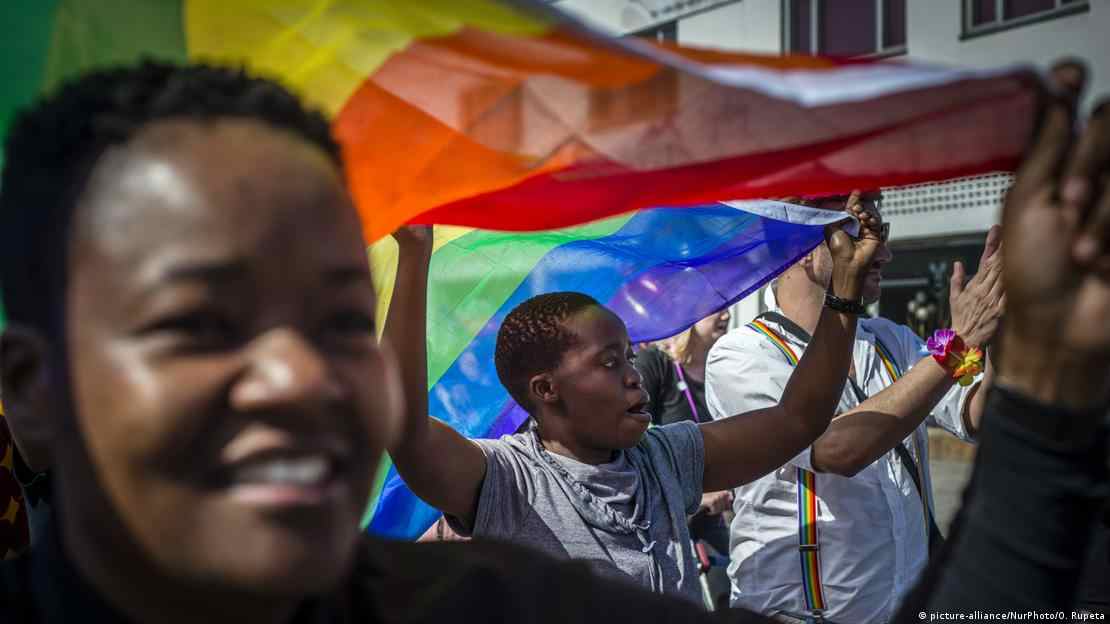Same-sex marriage in Namibia is not currently legal in Namibia, and homosexuality remains illegal under the country’s colonial-era sodomy laws. In fact, same-sex relationships are largely stigmatized and discriminated against in Namibian society, with members of the LGBTQ+ community facing significant social, legal, and cultural barriers.
Despite this, there have been some recent strides towards greater acceptance and visibility for LGBTQ+ individuals in Namibia. In 2019, the country’s High Court ruled that individuals in same-sex relationships could no longer be discriminated against, and that the government must recognize and protect the rights of LGBTQ+ people.
However, while this ruling was a significant step forward, it did not legalize same-sex marriage in Namibia or provide full legal protections for LGBTQ+ individuals. Activists continue to work towards greater equality and acceptance for the community, though progress is slow and often met with resistance from conservative groups.
Namibia’s Supreme Court is set to hear two cases this month regarding spousal rights for non-Namibians in same-sex marriages with Namibian citizens. This is the first time since 2001 that the court will hear a case concerning the rights of same-sex couples, and it’s a crucial moment for LGBTQI+ rights in Namibia.
The cases involve the foreign spouses of Namibian nationals who are appealing to be granted the same spousal immigration rights as partners in opposite-sex marriages. The couples are not fighting for the legalization of same-sex marriage in Namibia but rather for the recognition of marriages concluded outside the country.
Same-sex marriage in Namibia is a highly controversial issue. In the cases to be heard by the Supreme Court, the married couples are not fighting for the legalization of same-sex marriage, but rather for the recognition of marriages concluded outside the country.
One of the couples, German citizen Anita Seiler-Lilles and her Namibian spouse Anette Seiler, had their case prompted when Seiler-Lilles’ application for permanent residence was rejected by Namibia’s home affairs and immigration ministry. The rejection was due to their marriage not being recognized in the country.
The other couple, Daniel Digashu, a South African citizen married to Namibian national Johann Potgieter, encountered a similar problem when applying for a work permit in the country. Their marriage was not recognized, and Digashu has since lived in uncertainty, taking his case to court and remaining in the country through visitor’s visas.
In January 2022, the High Court dismissed the couples’ application to have their same-sex marriages recognized in Namibia, stating that it was bound by a previous decision of the Supreme Court in 2001, which stated that domestic law did not recognize same-sex relationships.
However, the High Court agreed in principle that LGBTQI+ persons in Namibia have the right not to be discriminated against based on their sexual orientation, and the final word on that will have to come from the Supreme Court.
The cases involve discrimination against same-sex couples and will establish important jurisprudence for the rights of people in same-sex marriages, according to Legal Assistance Centre lawyer Dianne Hubbard. The Constitution does not speak specifically on this immigration issue but prohibits discrimination and promises that all people are equal under the law.
As the couples anticipate the impending hearing, they say they worry about what will happen if the Supreme Court does not rule in their favor. For both couples, this would mean uprooting the lives they have built in Namibia.
The couples say they are nervous and anxious as they ready themselves for the fight of their lives. “I’m very nervous about the whole thing because it’s our life that is before the court. We don’t know what the judges will decide and how our life will go on in the next years,” said Seiler-Lilles.
For Digashu and his husband, the prospect of separating or uprooting their family seems inconceivable. “We’ve invested so much in our lives here. My fear would be of breaking down our family potentially. It would just bring about uncertainty and chaos, so I’m terrified of that,” said Digashu.
The outcome of these cases could have far-reaching implications for LGBTQI+ rights in Namibia and could mark a significant step forward for the recognition of same-sex partnerships and the rights of same-sex couples in the country.
Image Credit: picture-alliance/NurPhoto/O. Rupeta




